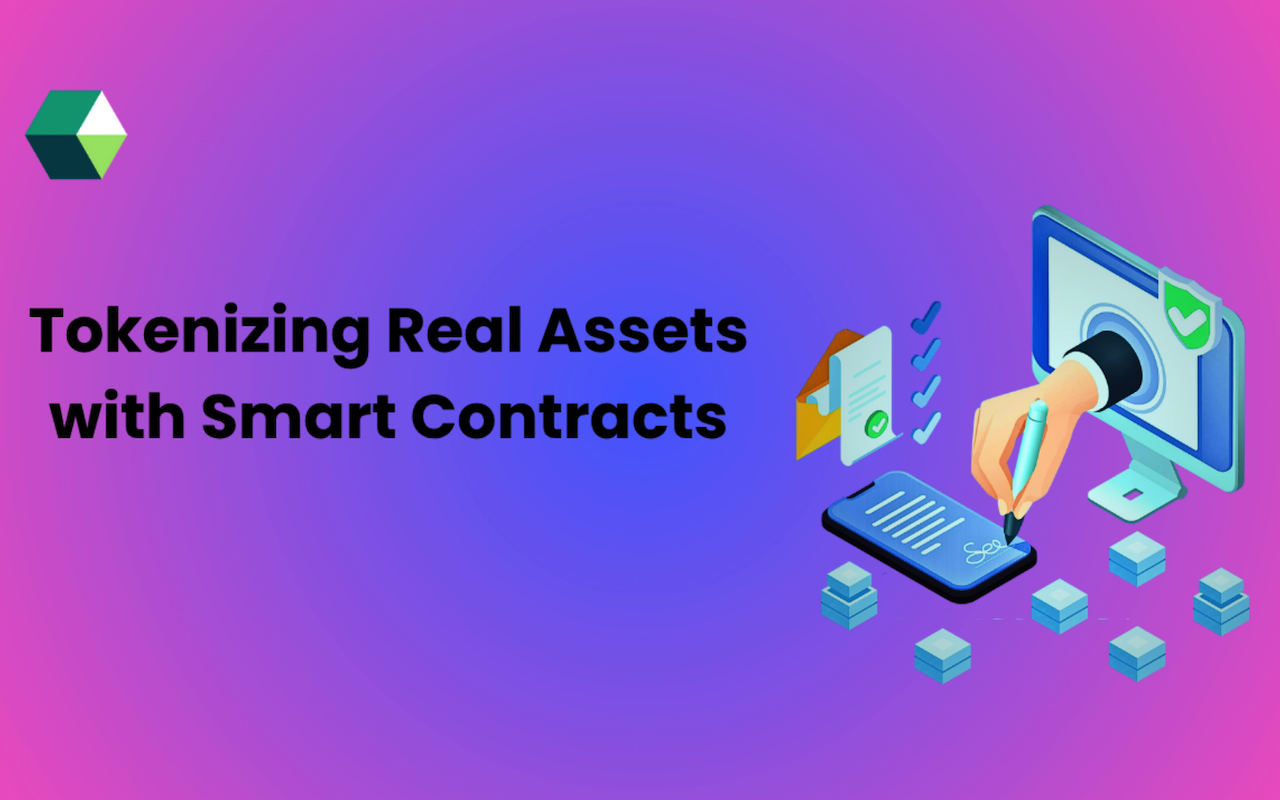
The more blockchain matures, the closer it gets to actual deployment scenarios. But the most exciting of them all is Real-World Asset (RWA) tokenization, where a real, physical asset like real estate, gold, art, etc., is represented digitally via a blockchain. It facilitates pseudo-ownership, trade, and legal compliance by the use of smart contracts.
Today, indeed, companies are taking advantage of custom smart contract implementations to make asset management a lot simpler and effective, thus bringing in transparency in the system.
What is RWA Tokenization?
Tokenization, on the other hand, converts real-world assets into digital tokens that can be shared and exchanged without any intermediary. Tokens represent the ownership of a part or all of an underlying asset. It also supports fractional ownership, which allows investors to buy small shares in expensive assets such as a luxury flat or an art piece.
This is an automatic mechanism and it depends on the automated blockchain software that is smart contracts, which have full interest in ownership settings, allow the transfer state, and apply conditions without resorting to third parties.
The Role of Smart Contracts in Tokenization
Smart contracts are self-executing contracts that live on blockchain platforms. That means they manage token minting, distribution of these tokens, legal conditions associated with the issuance of new RWA on the chain, and, in some cases, peer-to-peer trading as well.
For example:
- Property share transfers
- In precious metals, this can verify and track the physical reserves backing each digital token
- In art investment, it ensures that co-owners receive a fair share of any appreciation or sale profits
Usually, an expert DeFi smart contract development company handles the security and functionality of these contracts, making sure the code is optimized, secure, and meets industry standards.
Why Tokenize Real-World Assets?
Greater Accessibility
Blockchain tokenization opens access to traditionally limited assets, letting investors participate beyond exchanges with low liquidity like real estate and collectibles.
Improved Liquidity
The blockchain’s open ledger provides ownership records that are easily verifiable and secure.
Clear Ownership
Thanks to blockchain’s open ledger, ownership records are secure and easy to verify.
Cost Savings
Smart contracts take care of everything from transfers to revenue sharing to compliance, cutting down the third parties, which saves overall cost.
Quick Transactions
Traditional methods can take days or even weeks for asset transfers. In contrast, smart contracts can finalize these processes in mere seconds.
Supporting Technology For Tokenization
The most important factor for any tokenization effort is a strong development team. Companies that want to digitize their assets use smart contract developers to build a customized solution that accommodates their industry, regulations, and more
Leading providers have:
- Cross-chain contract development (Ethereum, Polygon, Solana, etc.)
- Security audits and vulnerability assessments
- Wallet, exchange, and dApp integration
- KYC/AML automation to meet regulatory requirements
- Oracles to verify data in real-time
These comprehensive DeFi smart contract development services help transform traditional assets into programmable digital tokens ready for the decentralized economy.
Tokenization Applications in 2025
1. Tokenized Property
Real estate tokenization allows investors to co-invest in fractionally owned properties, whether residential, commercial, or vacation rentals. Smart contractual ownership records, rental income payments, and regulatory compliance are tracked automatically through the blockchain. For example, an investor may own 5% of a luxury apartment in London and receive monthly dividends into their digital wallet without needing banks or brokers.
2. Gold-Backed Tokens
Each gold-backed digital token represents a definite amount of actual gold, held and secured from theft within an audited vault. Ownership transfer happens instantly through blockchain, and transactions are verifiable yet completely transparent. Investors get the safety and stability of gold, while trading acts like any other financial instrument on an exchange 24/7, without the hassle of physically storing and transporting real gold bullion.
3. Tokenized Art Ownership and Auctions
High-value artworks like paintings, sculptures, or rare collectibles can be tokenized, allowing several investors to co-own pieces. Smart contracts track the percentage owned by each individual investor, define ownership rights, and automate profit splits in the event of a sale or appreciation in value.
4. Green Energy Projects
Tokenization allows investors to buy shares of renewable energy projects like solar farms, wind parks, or hydroelectric plants. Smart contracts can automate distributions from energy sales and provide project performance information through real-time data oracles. This not only expands access to sustainable investments but also drives more capital into green initiatives.
Future Of Real World Asset Tokenization
In this world, tokenizing real-world assets is here for the long run, and it opens the door to a more open and accessible financial system. As the regulations take shape and the blockchain technology matures, more industries will try their hand at this form. Now the conjunction between the physical and digital worlds is getting tighter and tighter.
Disclaimer
This article is for informational purposes only and does not constitute financial, investment, or legal advice. Tokenization of real-world assets and the use of blockchain technologies involve risks, including regulatory uncertainty and market volatility. Readers should conduct their own research or consult with qualified professionals before making financial decisions. References to third-party tools, services, or resources are provided for convenience only. IPLocation.net is not responsible for the content, accuracy, or reliability of external links mentioned in this article.
Share this post
Leave a comment
All comments are moderated. Spammy and bot submitted comments are deleted. Please submit the comments that are helpful to others, and we'll approve your comments. A comment that includes outbound link will only be approved if the content is relevant to the topic, and has some value to our readers.

Comments (0)
No comment